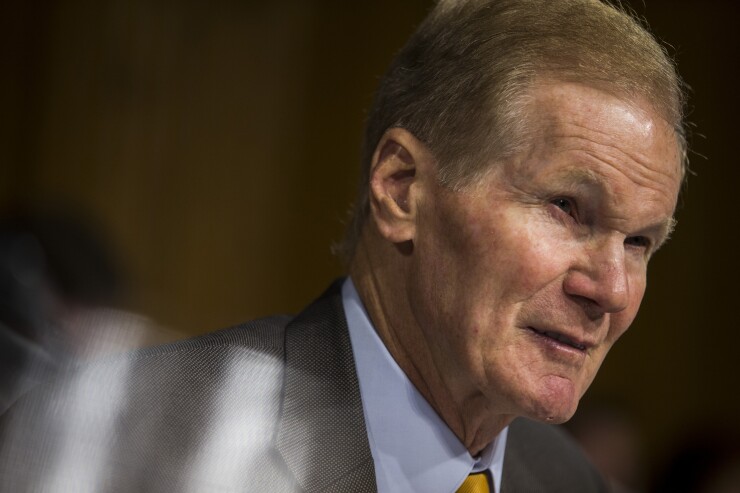WASHINGTON – Transit officials meeting here this week said they don’t think the tragic collapse of Florida International University’s pedestrian bridge, the loss of six lives and the resulting lawsuits and scrutiny of its federal funding should hurt a federal grant program.
The $19.39 million bridge, which collapsed onto a state road last Thursday, was funded with an $11.4 million Transportation Investment Generating Economic Recovery (TIGER) grant and another $2.2 million from the Federal Highway Administration funds as well as $1.99 million from Sweetwater, Fla., $3.73 million from FIU, and $60,000 from the state, according to U.S. Department of Transportation documents.
Florida Gov. Rick Scott directed the Florida Department of Transportation on Monday to indefinitely suspend the payment of all federal funding for the bridge project until the National Transportation Safety Board completes its investigation.
“Before another dollar is spent on this bridge, we must know exactly what happened,” Scott said.

The FDOT said Monday that it has reimbursed FIU $8.1 million on the project so far and has suspended future payments. There are no bonds associated with the project, said agency spokesman Dick Kane.
Sen. Bill Nelson, D-Fla., ranking minority member of the Senate Commerce, Science and Transportation Committee, sent a letter to U.S. Transportation Department Secretary Elaine Chu on Friday asking for a detailed explanation of DOT’s involvement in the project as well as all documents related to the TIGER grant it received.
“In light of the fact that there were multiple agencies and companies involved, we’re going to need a clear understanding of who had what role in this horrible tragedy,” Scott told Chao. “There should have been adequate and appropriate oversight on the ground. If anyone dropped the ball and it contributed to this tragedy then they should be held accountable.”
Nelson also asked for information detailing “what steps DOT, along with state and local entities, took to review and oversee the project’s engineering, construction, safety and inspection.”
In addition, he asked what safety requirements are necessary for conducting testing and ongoing construction of a bridge over traffic.
In documents sent to Nelson, the U.S. DOT said, "Through our role as a partner in the federal/state partnership, USDOT can provide various types of technical support to its partners when asked. TIGER grant recipients are responsible for the actual planning, design, construction and maintenancee of their projects."
Rep. Mario Diaz-Balart, R-Fla., chairman of the House Appropriations Committee’s transportation subcommittee, said he plans to fully review National Transportation Safety Board’s findings “so we can address how this happened and how to prevent it from ever happening again.”
Transit officials meeting here on Monday for the American Public Transportation Association’s legislative conference were asked if they are concerned that the tragedy and scrutiny will hurt the TIGER grant program, which President Trump has proposed eliminating in his budget requests.
“No, I don’t,” said Peter Rogoff, a former undersecretary at DOT and administrator of the Federal Transit Administration who is now CEO of Sound Transit, officially the Central Puget Sound Regional Transit Authority, for the Seattle metropolitan area.
“Obviously the loss of life in Florida was tragic and we mourn the victims and put our hearts out to the families,” said Rogoff. “But the fact that funding for that particular piece of infrastructure was from the TIGER program, I don’t think is necessarily significant.”
“I don’t think anyone would argue that the tragic bridge collapse in Minneapolis or the collapse of the Skagit River Bridge in Washington State should call into question the wisdom of the federal aid highway program,” Rogoff said, adding, “What really matters here is appropriate oversight, appropriate safety inspections, and that would be true for whatever federal program the dollars are derived from.”
Other APTA members seemed to agree.
Shelly Sigo contributed to this article.





